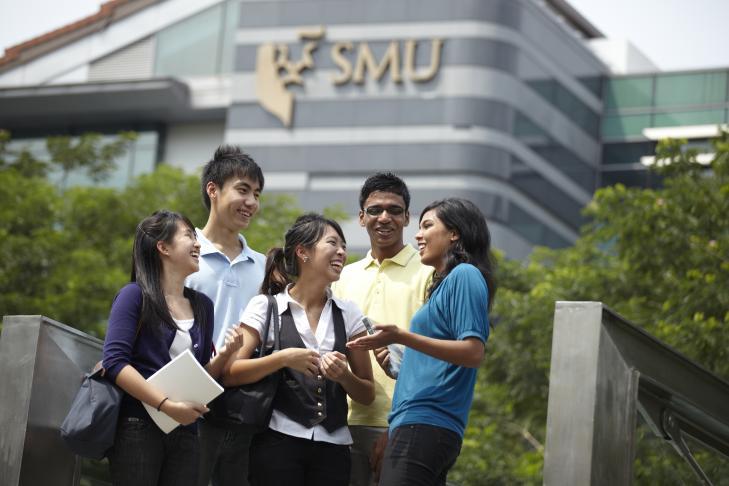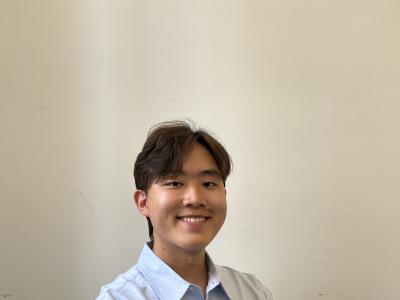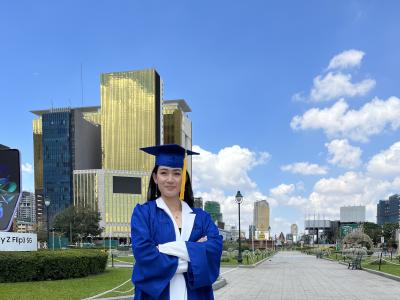
New majors offer more pathways to students, and build both depth and breadth
In an exclusive interview, SMU Provost Professor Lily Kong told The Straits Timesthat from August this year, the university will offer its undergraduates politics, law and economics (PLE) as a major. The multi-discplinary major aims to give students a broad understanding of how the world works and will prepare them for a range of careers. Another new major to be offered is entrepreneurship. This major is designed for students who may be interested in starting businesses or social enterprises, as well as for students who want to develop an entrepreneurial mindset, so that they can seize opportunities, innovate and create value for the companies that they will go on to work for. Professor Kong said the new courses are meant to offer more pathways to students, to build both depth and breadth.
SMU to offer course on politics, law & economics
It's also offering entrepreneurship as a major; both courses aim to build depth and breadth
By Sandra Davie
Britain's Oxford University offers the prestigious PPE – its signature politics, philosophy and economics undergraduate course.
Its graduates have gone on to become writers, journalists and politicians, including British Prime Minister David Cameron and novelist Vikram Seth.
From August this year, the Singapore Management University (SMU) will offer its undergraduates PLE – politics, law and economics.
In an exclusive interview, SMU provost Lily Kong told The Straits Times how the PLE course is aimed at giving students a broad understanding of how the world works and will prepare them for a range of careers.
The 45 students selected for the course will take all three subjects in the first year, before specialising in one of four areas – global studies, distribution and justice, public policy and governance, or choice and behaviour – from year two.
Students will also be required to go on a 10-week internship where they will work on a project to find solutions to a real-world problem.
Another new course that will be offered to SMU students from August will be entrepreneurship as a major. Among the modules offered are social entrepreneurship, design thinking and innovation, and technological entrepreneurship.
The university, which is redeveloping parts of its city campus, will also make space available to incubate student start-ups.
"SMU's PLE aims to prepare future leaders and thinkers with a deep understanding of global political and economic transformations and the legal frameworks and contexts within which such changes take place," said Professor Kong.
"Due to the interdisciplinary nature of the programme, graduates would be well-equipped with the knowledge and skills to handle multi-faceted jobs in their chosen fields of public service, non-government organisations or industry.
"They could choose from a wide range of jobs, including careers in journalism, diplomatic service, foreign affairs, public service, consulting and research."
She noted that several companies have already indicated their interest to offer internships to the students on the course. This includes the Economic Development Board as well as consultancies such as Bain and Company and Accenture.
Prof Kong also explained why SMU is making the bold move to offer entrepreneurship as a major.
Nanyang Technological University (NTU) offers it as a minor subject, while the National University of Singapore offers technopreneurship as a minor subject and runs a special programme at its overseas colleges to nurture entrepreneurs.
Prof Kong said it was yet another pathway for students who may be interested in starting businesses or social enterprises.
"But the major is also meant for students who want to develop the entrepreneurial mindset, who can seize opportunities, innovate and create value for the companies that they will go on to work for," she said.
Prof Kong said the new courses are meant to offer more pathways to students, to build both depth and breadth.
She noted that the fast-changing world ahead requires graduates who can become skilled specialists as well as those who are "broadly prepared to take on a lifetime of different careers".
"Thus, it is important that we prepare students who are able to deep dive and acquire specific expertise and skillsets in established domains, and at the same time, prepare students to have a broad understanding of how the world works, so as to have the flexibility and versatility to switch careers."
One parent keen on the PLE course for his son and daughter is business manager Terence Wong.
The 48-year-old business graduate from NTU said: "The world changes so fast that much of what you learn today will be obsolete in a few years. But what will never become obsolete are skills like the ability to process information, to look at problems from different perspectives and find solutions to them, and adaptability and flexibility.
"These are the things that I want my children to master and I feel a broad-based course like the PLE will be able to nurture such skills and attributes in them."


